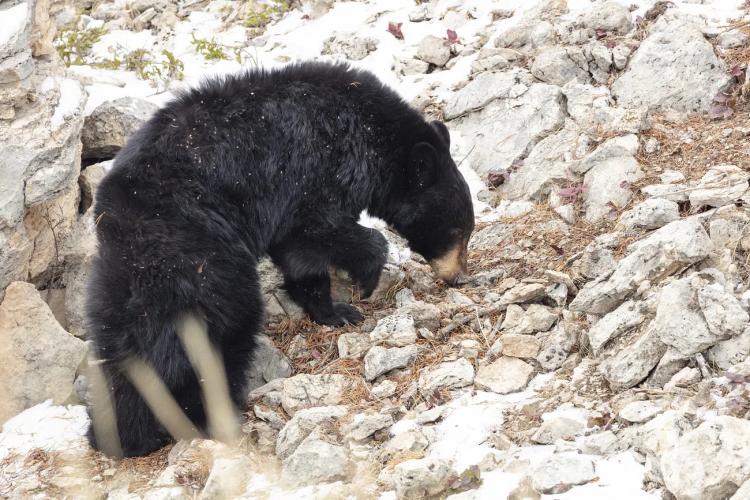Bear safety tips: Mind your trash, more

Bears are sporadically seen in the Boulder foothills and, on rare occasions, on campus.
It’s important that students, faculty, staff and the larger Boulder community become familiar with bear safety tips:
- Don’t feed bears, and don’t put out food for other wildlife that attracts bears.
- Be responsible about trash and bird feeders. The city of Boulder has a city ordinance that requires trash to be secured in bear-resistant trash cans or carts for residents in designated areas within Boulder. Residents within the secure trash implementation zone, including students living in rental units, should be provided with retrofitted bear-resistant trash cans/carts from their trash disposal company. Learn more about the bear-resistant trash ordinance.
- Keep all bear-accessible windows and doors closed and locked, including home, garage and vehicle doors. Don’t leave attractants such as snacks, food wrappers, gum or even scented hand lotions in your car, and don't leave pet food outside your home.
- If you see a bear on campus, call 911. Stand still, stay calm and let the bear identify you and leave. Talk in a normal tone of voice. Be sure the bear has an escape route. If you see cubs, their mother is usually close by. Leave the area immediately.
Visit the Colorado Parks & Wildlife "Be Bear Aware" page or the Boulder Open Space and Mountain Parks bears and mountain lions page for additional information and safety tips.
Read more: Tips for co-existing with campus wildlife
The CU Boulder campus is home to, or frequented by, raccoons, deer, squirrels, beavers, prairie dogs and dozens of species of birds. Foxes have also been making a rebound in the area. On rare occasions, we even get visits from larger animals such as coyotes and bears. CU Boulder's Environmental Services team offers a few simple reminders about interactions between people and wildlife on campus.


